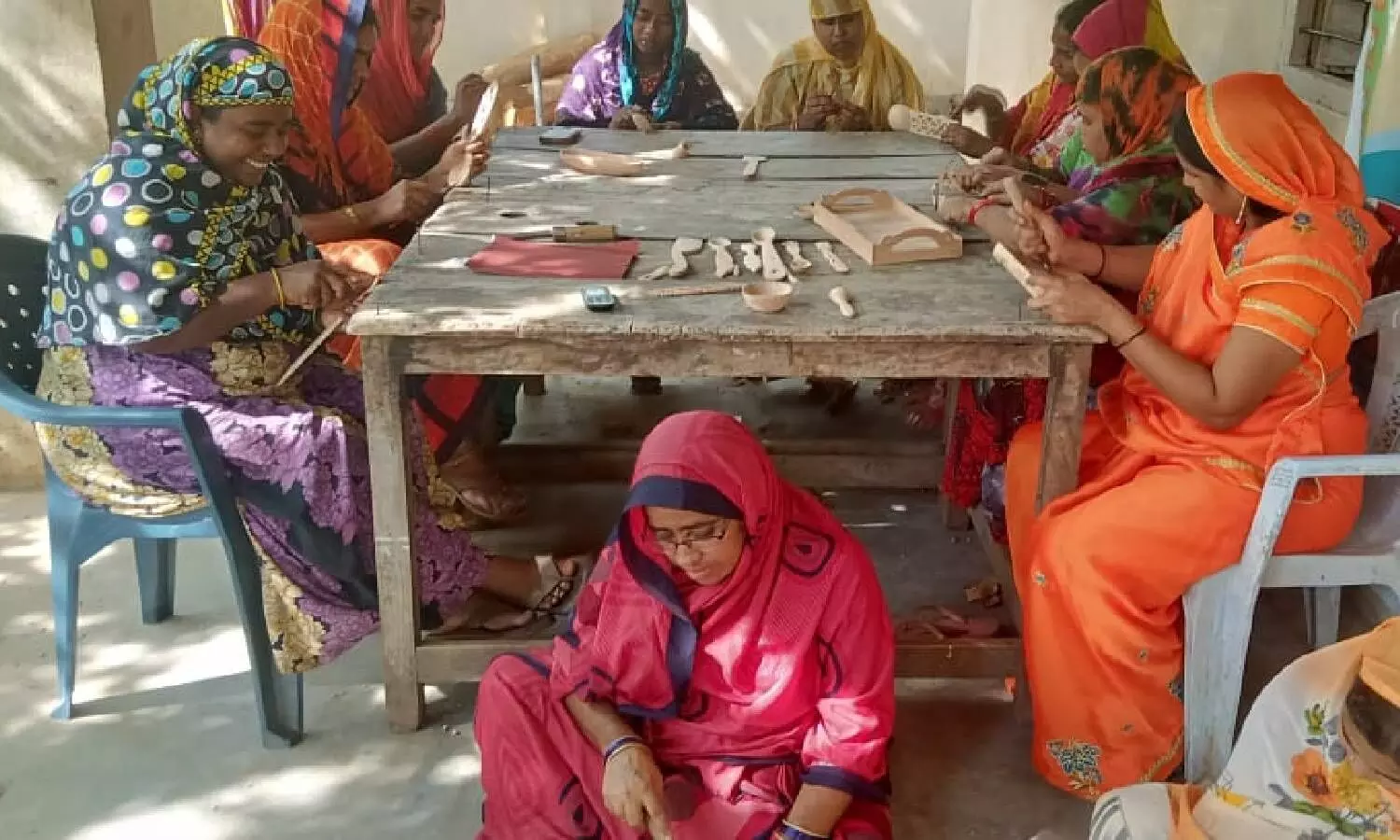Who is Shaik Gousia Begum? Why has she been selected for YSR award?
Situated 100 km from Nellore district headquarters, Udayagiri is known for its intricate wooden cutlery, soap cases, and bowls.
By Sri Lakshmi Muttevi
Nellore: A woman has made her village proud by reviving the dying art of Wooden Cutlery of Udayagiri in Nellore District of Andhra Pradesh. Inheriting the craft from her father, Shaik Gousia Begum has trained 400 artisans in woodware. She has now been selected for YSR Award 2022.
Why is Udayagiri famous?
Situated 100 km from Nellore district headquarters, Udayagiri is known for its intricate wooden cutlery, soap cases, and bowls. More than a hundred years ago Sheikh Abdul Bashir was impressed by the softwood cutlery art of Dadasahib, a carpenter. Sheikh Abdul learnt the art and sold his products locally. He soon began improvising with intricate designs and carving. His cutlery caught the eye of tourists visiting Udayagiri and the Handicraft Department, which subsequently began training artisans, particularly women in the craft.
Shaik Gousiya Begum who is the third generation artisan, took up this job after her father fell sick. She trained many craftsmen. Later she also trained her son Zakeer Husain who is now a fourth-generation artisan.
"After my father fell sick in 2005, I took up the profession and started teaching people. From a batch of 5-6 members, now we have 400 artisans who work in the cluster at the village. Everyone is from a poor background. We used to make products and sell them in other states," said Shaik Gousiya Begum.
She also received the State Award in 2005.
Her son takes it to social media
Begum's son always wanted to become a police constable. But she wanted him to pursue business and keep the tradition alive. Zakeer Husain who learnt the work from his grandfather also trained other women. However, as time passed, Udayagiri Cutlery saw a downfall due to a lack of marketing. It was Hussain who promoted the products on social media platforms. "Now, my son is responsible for sales and promotion. We send our products to Lepakshi stalls in Hyderabad, and Andhra Pradesh. My son also travels to other countries to sell products in exhibitions", said Begum.
Much Demand
Begam says their wood cutlery has a great demand. People book their products online. They have designed 150 different products. These include wooden spoons. forks, salad bowls, trays, and combs influenced by Persian motifs and patterns, earrings, toys, lamps, and many more.
How do they make it?
Wood cutlery takes a lot of time and patience for perfection. The local wood of Devadari, Nardi, and Khalidi is sourced from Durgampalli hills and dried for ten days. The wood is then soaked in water for 2 days, and then dried again in the shade for 3 days. The process of making cutlery then begins and takes time depending on the design.
Take it around the globe:
"I want to take this art form to other countries and make my grandfather proud. Previously, my grandfather used to make and sell locally. But later, I started to run the business on social media and set up stalls in every exhibition hosted by the government", said Zakeer Hussain.
GI tag
Wood cutlery of Udayagiri got its significance when the village was granted Geographical Indications (GI) tag for being the only region with such a craft form in 2016. Then they started selling out at famous exhibitions such as Shilpararnam in Hyderabad. The women later set up the Udayagiri Cutlery Mutually-Aided Cooperative Society.
Need for development
Tucked away in a quaint corner of the Nellore district, the artisans said there is a need for the development of their cluster. They have been regularly asking the government for better space that can accommodate 400 workers.
. "Udayagiri has a great future and many prospective buyers. However, we need better manpower and machinery. Currently, 90% of the work has to be done by hand. Schemes and opportunities for training more people on this craft form are what we need" said Hussain.